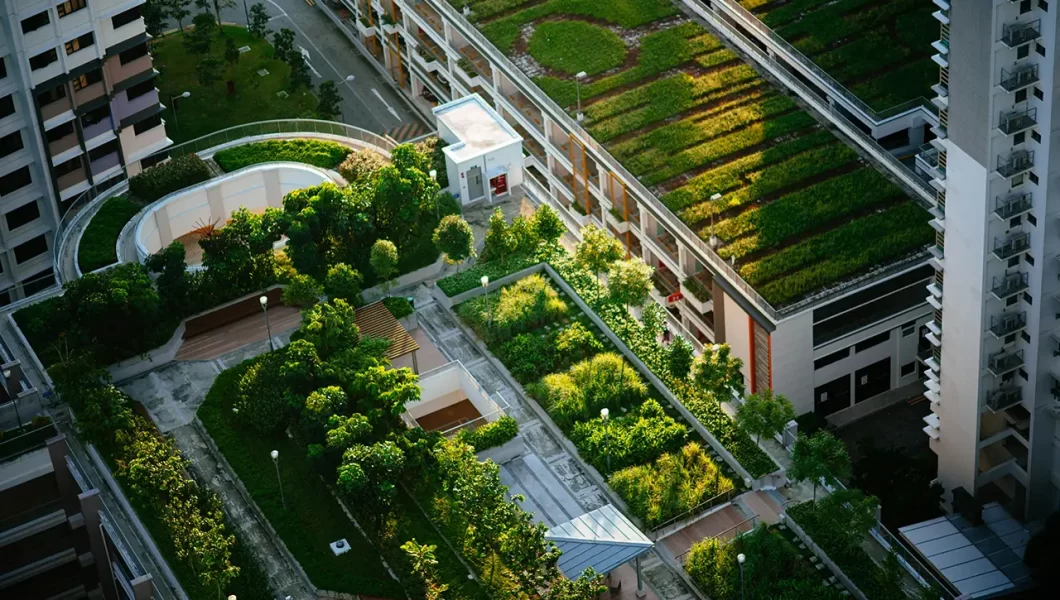Embracing Urban Gardening: What You Need to Know
Understanding the Essence of Urban Gardening
Urban gardening, also known as urban agriculture or urban farming, is gaining popularity in urban areas worldwide. This practice involves cultivating, processing, and distributing food in or around urban settings. From rooftop gardens to community allotments, urban gardening takes various forms, offering a myriad of benefits to urban dwellers.
The Emergence of Urban Gardening
In recent years, urban gardening has emerged as a sustainable solution to various urban challenges. With concerns about food security, environmental degradation, and community well-being on the rise, more people are turning to urban gardening to address these issues. This trend not only promotes local food production but also fosters community engagement and environmental stewardship.
Exploring the Benefits of Urban Gardening
Environmental Impact of Urban Gardening
Urban gardens play a crucial role in mitigating environmental issues such as air pollution and urban heat islands. By absorbing carbon dioxide and improving air quality, urban gardens contribute to a healthier urban ecosystem. Additionally, they promote rainwater absorption, reducing the risk of flooding and soil erosion in urban areas.
Health and Well-being Benefits
Engaging in urban gardening activities offers numerous health benefits, both physical and mental. Studies have shown that spending time in green spaces and interacting with nature can reduce stress levels and improve overall well-being. Furthermore, having access to fresh, home-grown produce encourages healthier eating habits, contributing to better nutrition and overall health.
Community Cohesion Through Urban Gardening
Urban gardens serve as communal spaces where people from diverse backgrounds come together. Whether it’s through community garden projects or neighbourhood gardening initiatives, urban gardening fosters social connections and a sense of belonging. By working together towards a common goal, urban gardeners build stronger communities and promote social cohesion.
Overcoming Challenges in Urban Gardening

Addressing Space Constraints
One of the primary challenges of urban gardening is the limited space available for cultivation. However, with innovative solutions such as vertical gardening and container gardening, urban gardeners can maximise limited space and create thriving green spaces even in the heart of the city.
Improving Soil Quality in Urban Settings
Urban soil often suffers from contamination due to industrial activities and pollutants. To overcome this challenge, urban gardeners can use raised beds filled with high-quality soil or employ soil remediation techniques to improve soil health. Additionally, composting organic waste can enrich the soil and promote healthy plant growth.
Managing Pests and Diseases
In densely populated urban areas, pests and diseases can pose significant challenges to urban gardeners. Implementing integrated pest management strategies and selecting disease-resistant plant varieties can help mitigate these issues without relying on harmful pesticides. Furthermore, practising crop rotation and maintaining proper garden hygiene can prevent pest and disease outbreaks.
Getting Started with Urban Gardening: Tips and Advice
Start Small and Experiment
Begin your urban gardening journey with a small-scale project that fits your space, time, and resources. Whether it’s a balcony herb garden or a community plot, starting small allows you to gain experience and confidence before expanding your urban garden.
Choose Suitable Plants for Urban Environments
Select plants that are well-suited to urban growing conditions, considering factors such as sunlight exposure, soil quality, and water availability. Herbs, salad greens, and compact fruit varieties are excellent choices for urban gardens, as they thrive in confined spaces and are relatively low-maintenance.
Embrace Sustainable Gardening Practices
Practice sustainable gardening techniques such as composting, water conservation, and natural pest control methods. By reducing your environmental impact and promoting biodiversity in your urban garden, you can contribute to a healthier and more resilient urban ecosystem.
Engage with the Urban Gardening Community
Join local gardening groups, attend workshops, and participate in community gardening events to connect with like-minded individuals and share knowledge and resources. By collaborating with others in the urban gardening community, you can learn from each other’s experiences and contribute to the collective success of urban gardening initiatives.
Conclusion: Cultivating a Greener Urban Future
Urban gardening offers a holistic approach to addressing urban challenges and promoting sustainable living in cities. By creating green spaces, fostering community connections, and promoting environmental stewardship, urban gardeners play a vital role in building healthier, more resilient urban communities. Whether you’re a seasoned gardener or a novice enthusiast, there’s always room to cultivate a little green oasis amidst the concrete jungle. So, roll up your sleeves, grab your trowel, and join the growing movement of urban gardening. Happy gardening!
By incorporating urban gardening into our urban landscapes, we can create a more sustainable and vibrant future for our cities. Whether you have a sprawling rooftop or a modest balcony, there’s always room to cultivate a little green oasis amidst the concrete jungle. So, let’s roll up our sleeves, dig in the dirt, and sow the seeds of change, one garden at a time.
Happy gardening!
This comprehensive guide to urban gardening aims to equip you with the knowledge and inspiration to embark on your own green journey. Whether you’re a seasoned gardener or a novice enthusiast, there’s always something new to discover in the vibrant world of urban gardening. So, let’s nurture our cities, one seed at a time.








No Comments